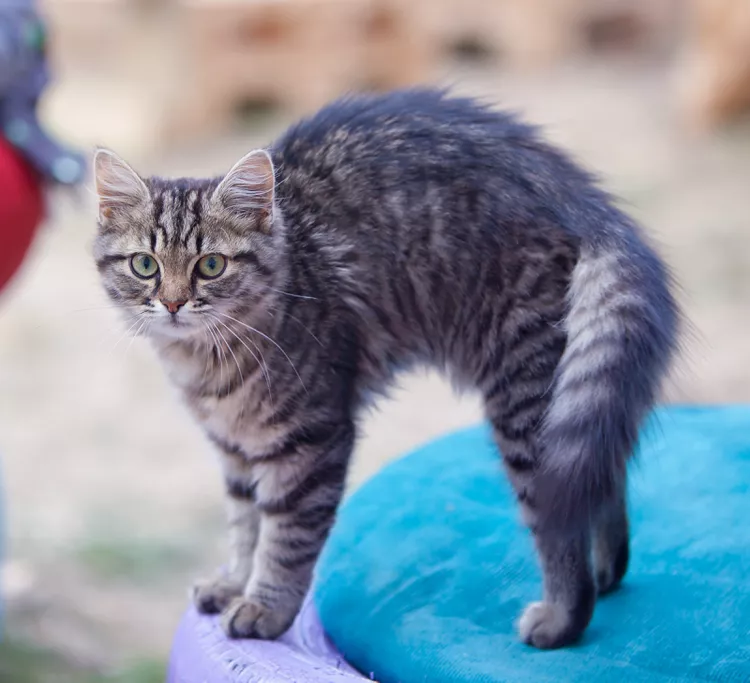
Feline Hyperesthesia Syndrome (FHS), commonly called rippling skin disorder, can be mistaken for normal crazy behavior in cats. However, it's a syndrome that may require treatment. Tuning in to the symptoms, such as skin twitching, abnormal vocalizations, and erratic behavior will help you and your veterinarian identify the need for medical intervention.
Learn more about Feline Hyperesthesia Syndrome and its common treatments and prevention methods.
Feline Hyperesthesia Syndrome (FHS) is a disorder in which the characteristic symptom is rippling or shuddering skin (particularly on the back, near the base of the tail). FHS also manifests as behavioral abnormalities that are even more concerning, such as excessive vocalization and generalized agitation.
To track symptoms that may indicate FHS, consider documenting the frequency of twitching or odd behaviors, such as:
The exact cause of Feline Hyperesthesia Syndrome is often unknown. Because of this, FHS has been categorized as a behavioral, neurological, and/or skin disorder. While any cat can be affected by it, Asian breeds such as the Siamese, Burmese, Abyssinian, and Persian tend to be diagnosed more frequently. Most cats affected by Feline Hyperesthesia Syndrome start to exhibit symptoms between one and seven years of age. Possible triggers include:
Diagnosis of FHS is often a process of elimination. A veterinarian will often look for evidence of skin disease, trauma, or underlying health conditions before making a diagnosis. Because this condition is so often idiopathic (no known cause), your doctor may recommend dietary and environmental modifications before opting for more diagnostic tests like an MRI. Of course, if seizures have been noted, then neurological tests may be recommended.
A cat with FHS can be helped at home by relieving stressors along with providing exercise-based activities, such as interactive play with wand toys. Clicker training, a very effective and fun behavioral modification approach, may be used to stimulate a cat's activity level and alleviate anxiety.
Removing negative influences and exposures, such as other aggressive pets or loud noises, can help. A diet change to a hypoallergenic diet may be tried in cats with known or suspected allergies. Effective flea control is a must.
Anti-convulsant medication such as phenobarbital may occasionally be prescribed for the FHS cat that experiences seizures, or low dosages of mood-stabilizing drugs may be prescribed to help calm a cat.
Although a cat with FHS may never be entirely "cured" with modifications or medication, you can work with a pet behaviorist to help your cat feel happier and more comfortable.
The quality of life for a cat with FHS depends on the cause of the condition. The goal of treatment is to make a cat more comfortable. If a recommended treatment does not seem to be working, a follow-up with a veterinarian is recommended.

Exploring the Different Types of Pet-Friendly Beaches
Are you looking for pet-friendly beaches? Learn about the different types of pet-friendly beaches, their locations, and tips for visiting them with your pet.
Exploring Pet-Friendly Wineries: Types, Locations, and More
Discover the different types of pet-friendly wineries, where to find them, and what to expect when you visit. Learn more with The Spruce Pets.
Why Is My Dog’s Eye Swollen?
If your dog's eye is swollen, she may need veterinary attention. The inflammation could be caused by allergies, an injury, or even a tumor.
Can Dogs Eat Corn on the Cob?
Dogs love chewing on corn cobs, but this can cause serious harm. Learn about the dangers of corn cobs and find out what to do if your dog eats one.
Can Dogs Eat Papaya? What to Know About Sharing This Tropical Fruit With Your Pup
Papaya is safe for dogs in moderation, and it can even provide some nutritional value for them. However, too much can cause digestive upset, and it's not suitable to share with dogs with certain health conditions.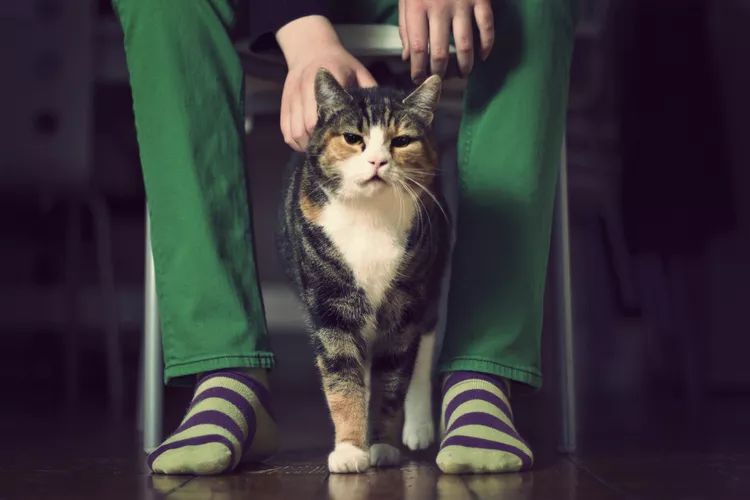
65 Irish Cat Names
Irish cat names can pay homage to historical places, local cuisine, famous Irish actors and musicians, or other wonderful aspects of the Emerald Isle.
Feline Hyperesthesia Syndrome (FHS) in Cats
Rippling skin is more than dermal sensitivity in cats. It can be a sign of Feline Hyperesthesia Syndrome. Learn the causes, treatment, and prevention.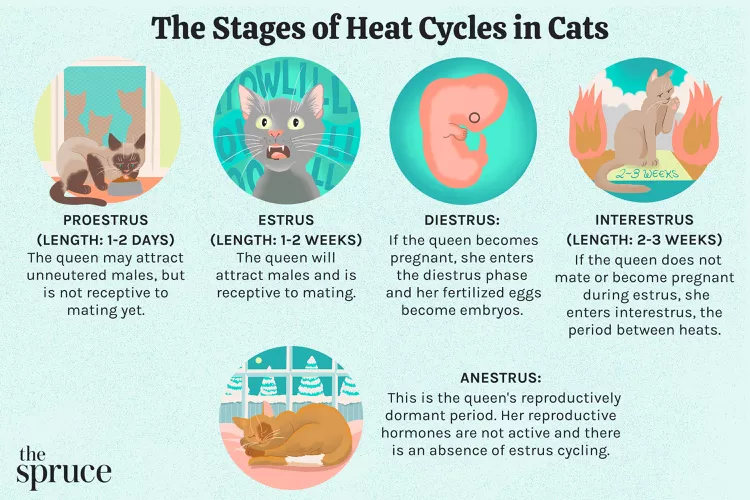
How Long Are Cats in Heat?
How long are cats in heat? Learn about the heat cycles of cats, also called estrus, as well as the reasons you should spay your cat.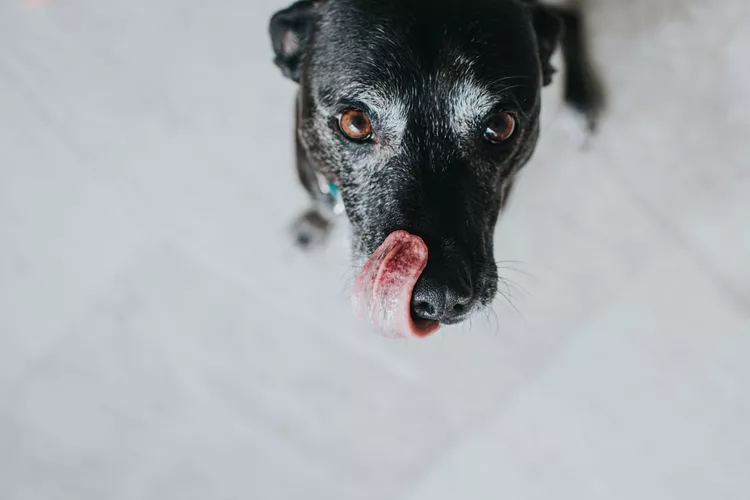
Can Dogs Eat Raw Chicken Feet?
What are the potential health benefits of chicken feet for dogs? What are the risks?
Is Eucalyptus Safe for Cats?
Many products containing eucalyptus are not safe for cats, and it is important to be aware of the risks to your cat.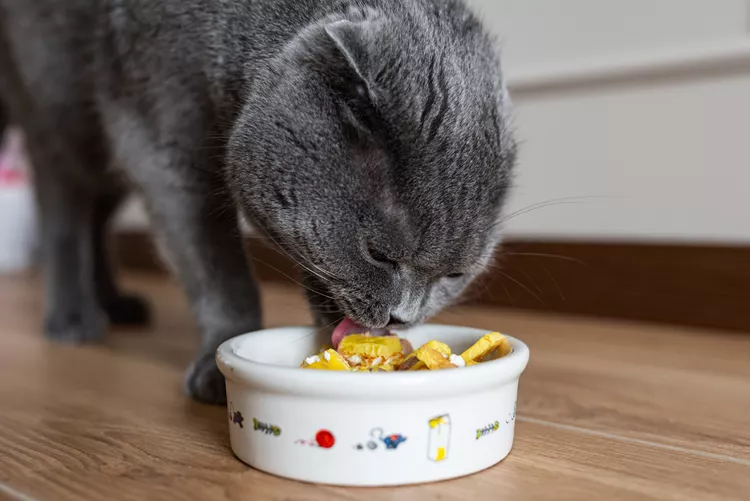
What You Need to Know About Homemade Cat Food
If you want to cook for your cat, make sure to read about the risks associated with homemade diets for cats
Can Cats Eat Peanut Butter?
Peanut butter is not toxic to cats, but it might not be the best choice of treat for them.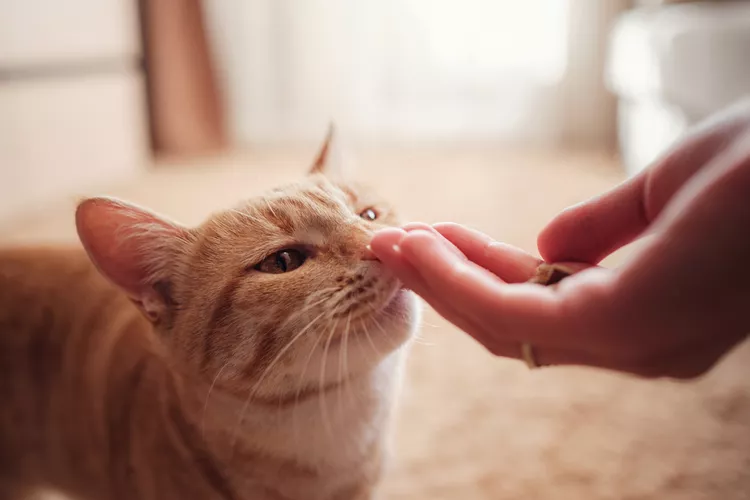
Can Cats Eat Cheese?
Can cats eat cheese? Is it healthy for them? How much can they eat and what should you do if you fear your cat has eaten too much cheese?
8 Flat-Faced Cats with the Cutest Smooshed Faces
These flat-faced cat breeds have a distinct and adorable appearance. Learn about their origins and traits, and the potential health risks tied to their unique facial structures.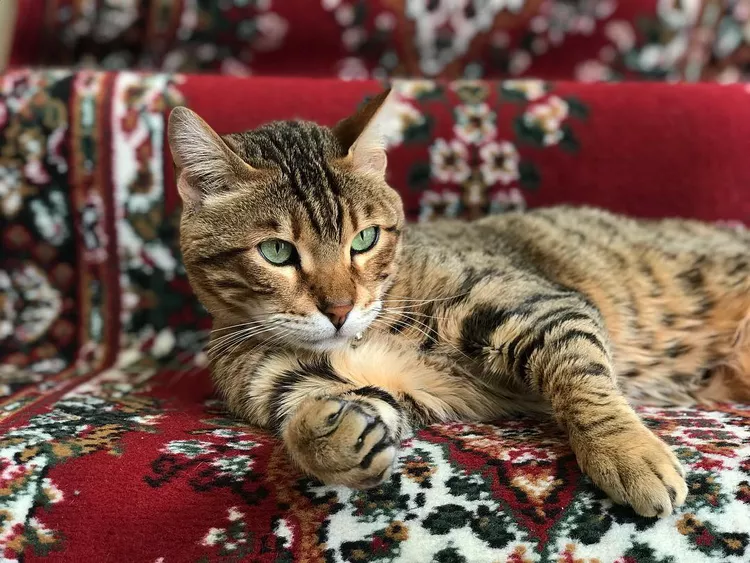
Pictures and Facts About Bengal Cats and Kittens
Bengal cats are a cross between wild cats and domestic cats. Learn more about what they look like and pictures of this beautiful spotted breed.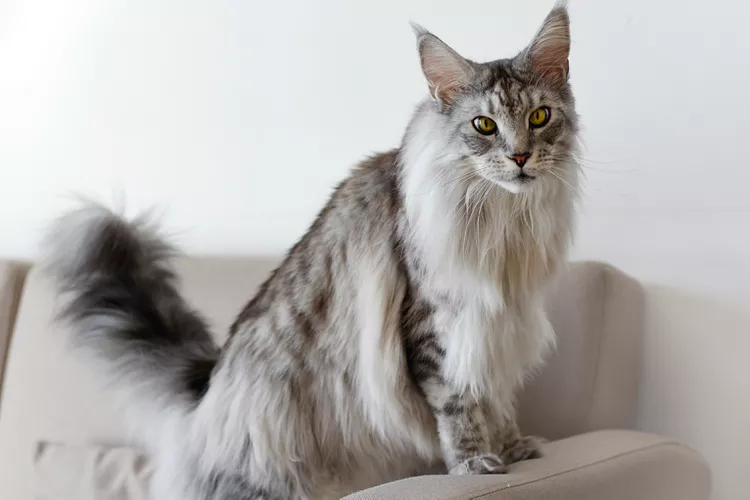
Top 10 Big House Cats
Larger cat breeds, like Maine coons and savannahs, deserve just as much love as their petite counterparts. These big house cats tip the scales.
Cairn Terrier: Dog Breed Characteristics & Care
The cairn terrier is a spunky, affectionate, and intelligent dog from Scotland. The breed became famous when one played Toto in The Wizard of Oz. Learn about the temperament, history, health, and care needs of the cairn terrier dog breed.
Reasons Why Dogs Grind Their Teeth
Some dogs grind their teeth. Learn why dogs grind their teeth and if it can be harmful. Find out what to do about teeth grinding in dogs.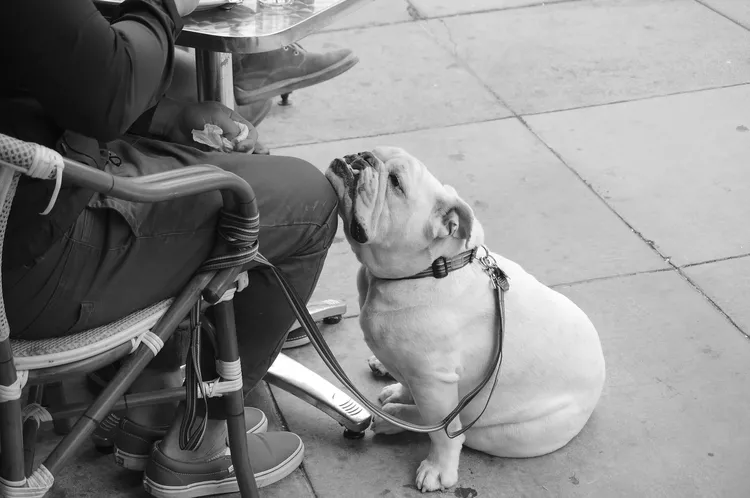
This Is Why Some Dogs Lean on People
Certain dogs really love leaning on their humans. What does this mean? Find out why dogs lean on people and if this is ever a problem.
Can Dogs Get Depression? How to Help Your Sad Dog
Can dogs get depression? Learn about the signs of depression in dogs and find out how to help your sad dog.